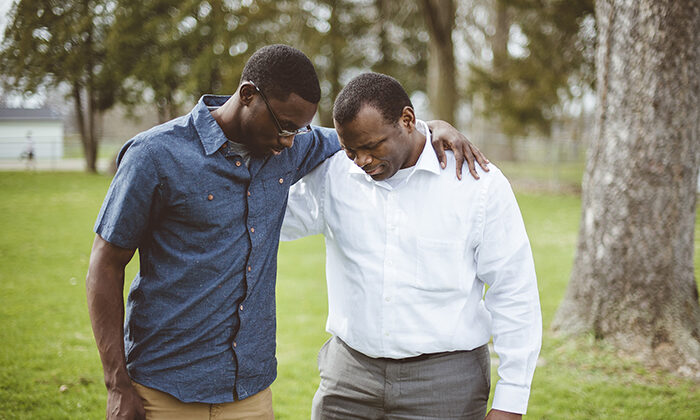
By Kevin Harris
If we want to leave a Christ-like legacy, where better to look than Jesus Himself? When Jesus invited the disciples to “follow me,” fisherman and tax collectors alike dropped their nets and left their families. After that, as they journeyed together, Jesus showed them what it looked like to follow Him by transparently modeling His faith, teaching them along the way of life, and then finally asking them to do the same thing for others. And the world was never the same. That’s a legacy.
Today we often shift Jesus’ invitation of “follow me” to the simpler “believe in me.” Our churches do a good job explaining what they believe and inviting people to believe in Jesus. But they don’t always emphasize what it looks like to follow Jesus in the world today. Sunday sermons and programs that dive deep into what we believe are great, and adding new believers is definitely a big deal. But the best way to create a lasting legacy is to help people go from believing in Jesus to following Jesus. You’ve probably heard someone say, “leadership is caught, not taught,” and I think the same applies here. If we want people to follow Jesus in their day-to-day lives, we need to show them how, we need to model what it looks like, just as Jesus did. And one of the most potent ways to model how to follow Jesus is intentional mentoring. In Mentor Like Jesus, Regi Campbell explains it this way, “Mentoring involves teaching as you do something. [It] occurs as you’re doing life together … being ‘in the moment’ … interactive.”
Now, please don’t hear me say that Bible studies, small groups, and Sunday mornings don’t matter. They absolutely do. But leveraging the older and wiser in your midst to model what it looks like to follow Jesus is an excellent addition to what you are already doing in these critical areas of ministry and an excellent way to directly influence the next generation of Jesus-followers. Mentoring is the lab that allows these valuable Bible lessons to come to life and get tested in the real world. And when you mentor in an intentional group, as Jesus did, you’re empowering your leaders to devote more time to fewer people and thus have a deeper influence on their lives. Jesus built a legacy (and a whole “way of life”) through mentoring, and He instructed us to do it too.
So, if mentoring is the best way to leave a legacy, what makes an intentional mentor? There are many things, but here are a few key ones:
PURPOSEFUL:
Mentors take Jesus’ words seriously. They know that having a John 10:10 life to the full requires thinking about others above ourselves. Mentoring is about purposefully showing someone how to be something – a learner and follower of Jesus.
SELFLESS:
It would be easier to approach the second half of life focusing on our golf handicaps or the toys we can accumulate, but mentors understand the value of a Jesus-centered legacy, and they choose to mentor out of obedience to the Father, not convenience.
ACCESSIBLE:
Mentors are the embodiment of the Christian life. They make their lives observable and accessible to their mentees. As spiritual fathers and mothers, mentors help their mentees see how a fully alive Jesus-follower lives.
We’d love to help you explore how intentional Jesus-style mentoring could help your church leave a lasting legacy. And the best part, our entire resource library is available to you for free. When you go here to get access, you’ll receive everything you need to launch Radical Mentoring groups for men or Known Collective groups for women, including our coaching and guidance. Learn more here.
Via churchanswers.com. Kevin is the President of Radical Mentoring, a non-profit focused on encouraging and equipping churches and mentors to use Jesus-style relational mentoring to create environments for people to be real and develop authentic relationships.

